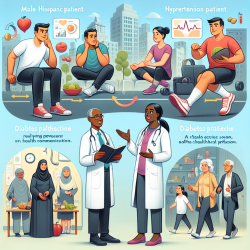The complexities faced by Hispanic and Latinx college students with uncertain immigration statuses are profound, impacting their educational journey and mental well-being. A recent study conducted in North Carolina sheds light on the lived experiences of these students, revealing the challenges they face due to ambiguous loss and legal uncertainties. This blog explores how practitioners can leverage these insights to improve their skills and foster a supportive environment for students navigating similar challenges.
Understanding the Impact of Ambiguous Loss
The concept of ambiguous loss emerges as a significant psychological risk factor for families with uncertain immigration statuses. This form of grief stems from prolonged uncertainty about the future, leading to emotional trauma that begins in childhood. Practitioners must recognize this trauma's manifestations, such as maladaptive behaviors that can adversely affect health and well-being throughout a student's lifespan.
Identifying Structural Barriers
The study highlights several structural barriers that impede educational success for undocumented or DACAmented students. These include limited access to mental health resources, educational services, and the criminalization of undocumented immigrants. Practitioners should be aware of these barriers to better support students in overcoming them.
The Role of Comprehensive Support Systems
Comprehensive assistance interventions are crucial in mitigating the adverse effects of these barriers. The study recommends more appropriate institutional and community support systems for immigrant students and their families. Practitioners can play a pivotal role by advocating for policies that provide equitable access to education and mental health services.
Encouraging Resilience through Coping Strategies
The research identifies various coping mechanisms employed by students to rebound from adversity. These include seeking knowledge about particular problems, engaging in positive planned actions, and drawing support from cultural groups. Practitioners can encourage these strategies by creating safe spaces for students to express their concerns and seek guidance.
Further Research Opportunities
This study opens avenues for further research into the unique challenges faced by immigrant students. Practitioners are encouraged to delve deeper into understanding how legal uncertainties impact educational outcomes and explore innovative ways to support this vulnerable population.
By integrating the insights from this study into practice, educators and therapists can enhance their ability to support Hispanic and Latinx students effectively. Understanding their narratives not only enriches professional expertise but also contributes to creating a more inclusive and supportive educational environment.
To read the original research paper, please follow this link: Childhood narratives and the lived experiences of Hispanic and Latinx college students with uncertain immigration statuses in North Carolina.










